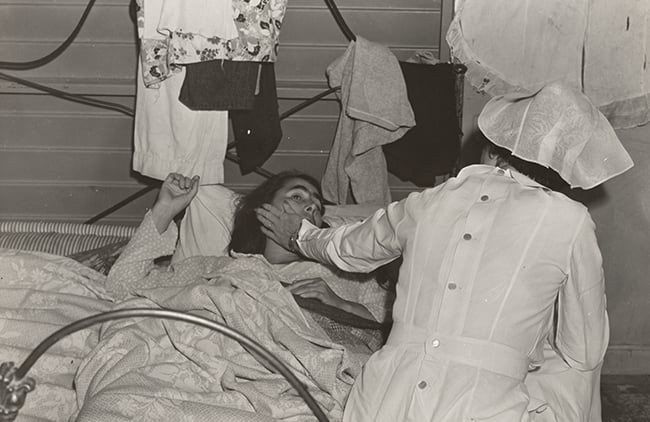The World Health Organization has officially declared Coronavirus a global pandemic.
The lead up to this moment has been fraught with sharply dichotomous reactions both from the public and the various world governments who have responded to it. From an official side, we’ve seen everything: the entire country of Italy quarantined, thermal body scanners deployed in public places in Singapore, and assurances within the United States that everything is fine.
Public opinion tends to vary widely on any topic, from global pandemics to the best fast-food burger chain. No one agrees on anything, ever. But what is interesting about the public’s response to, well, the public’s response about Coronavirus, is that the ends of the spectrum aren’t opposites.
It hasn’t been “panic” at one end and “equanimity” at the other. It’s been “panic” and “ridicule.”
Now, no one has ever accused social media of being a place of rational and calm discourse, but it is the place to go for fast-spreading news (insert virus joke here) and knee-jerk reactions. And what I’ve seen again and again as the Coronavirus threat has grown and spread, is ridicule and eye rolls over people taking precautionary measures.
To be clear, I’m not talking about people stealing face masks and hand sanitizer from hospitals. That’s stealing resources from the front lines of health care, from people who willingly place themselves in potential harm’s way when it comes to disease exposure and care. Stealing from those people is not precautionary, it’s flat-out an asshole move.
I’m talking about people stocking up on pantry staples.
I’m talking about people cancelling travel, even when they don’t have to.
I’m talking about people skipping public events, washing their hands a million times, staying home from school, and even—gasp!—wearing a mask.
It’s wrong to ridicule people for their caution, even if you think it’s an overabundance of caution.
People have different risk profiles, or measures of how risk-comfortable or risk-averse they are. Some people like aggressive investment strategies, even though they inherently carry more risk. Other people want to play it safe with their money. Some people like roller coasters. Other people don’t. Some people like motorcycles. Other people drive Subarus. In the risk versus reward calculus that we all do when making decisions, people measure each of those—risk and reward—differently.
Some people are going to have a lower risk tolerance when it comes to Coronavirus. And for good reason. This is a new virus. There is no vaccine. There is no cure. It spreads quickly. People can often carry the virus and be asymptomatic, showing no signs of illness for up to two weeks, spreading it to others that entire time. And it kills. Particularly at risk are the elderly and the immune-compromised. We don’t know how much—or if—the virus’s spread will be slowed by warming seasons the way the flu is.
We don’t know a whole lot.
What we do know is that in countries where it has been able to bloom, the death toll numbers are in the thousands and the healthcare systems are overwhelmed. And we know that even if you are young and healthy enough not to be adversely affected by the virus, you can still become a vector for the spread. Just because you won’t get sick, doesn’t mean you won’t get other people sick.
If you know all that and still think you are fine going out and about as normal, traveling, and not letting Coronavirus impact your life, then you are risk-comfortable.
Other people know all that and want to hunker down.
And that’s okay.
Let’s move the reaction spectrum back to opposites. Let’s have one extreme be panic, and then let’s strive as a society not to get to that level. Let’s keep our heads about us and wash our hands.
And then let’s make the other extreme be not ridiculing those who are more risk-adverse than you, but rather the opposite of panic, equanimity. Synonyms are calmness, confidence, detachment, and imperturbability. And maybe let’s strive as a society not to be too extreme to that end, either.
Coronavirus is a big deal. You should be taking steps to prepare for its impact on your country and your day-to-day life. Have extra dry goods on hand. Practice social distancing. Stay home sometimes when otherwise you would have gone out.
And remember that other people aren’t going to assess risk the same way you are, and try not to be such a jerk about it.









Read 2 comments and reply